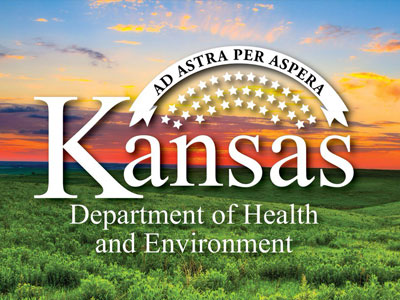High Risk of West Nile Virus Activity in Five Kansas Regions

The Kansas Department of Health and Environment has issued a high-risk warning for West Nile Virus infections for all regions of the state other than the southeast region, which is at a moderate risk level.
WNV is carried and transmitted by mosquitoes and can infect humans, horses, birds and other species. Most WNV infections occur in the late summer and early fall. 22 human cases of WNV have been reported to KDHE in 2023, including 17 neuroinvasive cases and three deaths. The Kansas Department of Agriculture has also reported seven equine cases of WNV for 2023. Confirmed equine cases have been reported in Barber, Butler, Douglas, Ford and Pratt Counties.
Most people infected with WNV will not feel sick, but about one in five people who are infected develop a fever and other symptoms. About one out of 150 infected people develop neuroinvasive disease, which includes swelling of the brain and/or brain tissue and, in some cases, death. There are no vaccines or medications to prevent or treat WNV in humans. Treatment consists of supportive care.
Similarly, horses infected with WNV can have symptoms that range from depression, loss of appetite and fever to severe neurologic signs such as incoordination, weakness, inability to rise and hypersensitivity to touch or sound. WNV can be fatal in horses but is preventable, with annual vaccinations that have proven highly effective. If you see symptoms of WNV in your horse, contact your veterinarian immediately. WNV is not directly contagious from horse to horse or from horse to human.
"We're right in the middle of our peak timeframe for WNV transmission here in Kansas, and with more widespread virus activity this year than in the previous several years, it's important to take mosquito bite prevention measures to protect yourself, your family and livestock against all mosquito-borne illnesses," said Dr. Erin Petro, State Public Health Veterinarian.
KDHE recommends taking the following actions to prevent mosquito bites.
When enjoying the outdoors, use insect repellents that contain DEET or other EPA-approved repellents, including picaridin, oil of lemon eucalyptus or IR3535. When used as directed, EPA-approved insect repellents are proven safe and effective, even for pregnant and breastfeeding women.
Individuals should cover their skin with clothing when outdoors, wearing long sleeves and pants when practical.
Mosquitoes bite during the day and night, but some species are more active at dusk and dawn. Limit outdoor activities during these peak mosquito activity times.
Use screens on windows and doors—repair holes in screens to keep mosquitoes outdoors.
Eliminate sources of standing water, which are important breeding sites for mosquitoes—empty standing water from tarps, old tires, buckets and other places where rainwater collects. Refresh water for bird baths, pet bowls and wading pools at least every three days and consider using larvicide in low-lying areas where water cannot be removed.
Talk with a veterinarian about vaccinations to protect horses against WNV.
For more information about WNV and mosquito bite prevention, visit the KDHE WNV website and check the current regional WNV risk levels, which are updated each Friday from June through October.
For more information about animal diseases, including WNV, visit the KDA Division of Animal Health website.
(Information courtesy KDHE.)

